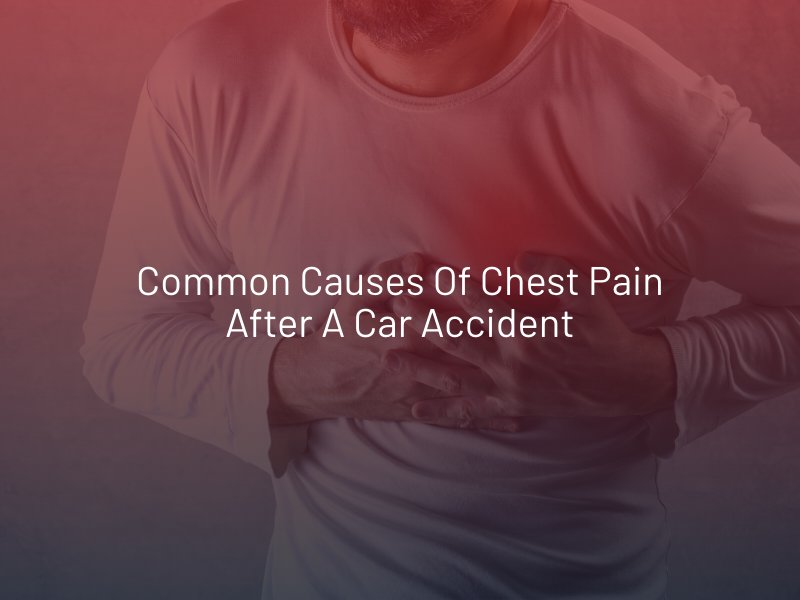What to Do if You Have Chest Pain After a Car Accident
Chest pain after a car accident should never be ignored, as it can signal a range of severe injuries, from broken ribs to internal organ damage. Here is what to do if you experience it.
Seek Medical Attention
Even if your chest pain seems mild, it is critical to get checked out by a doctor. Chest pain could be a symptom of a fractured rib, internal bleeding, a heart condition, and more. Delaying medical care can lead to complications, especially if the injury is severe. Visit the emergency room or urgent care right after leaving the scene.
Describe Your Symptoms in Detail
Tell the doctor when the pain started, whether it’s sharp or dull, if it worsens with breathing or movement, and if you have any accompanying shortness of breath, dizziness, or nausea. This information will help your healthcare provider assess the severity of your condition.
Follow the Treatment Plan
Follow your doctor’s instructions carefully to promote healing and avoid further complications.
Document Your Medical Care
Keep detailed records of all medical evaluations, treatments, and diagnoses related to your chest pain. This documentation is important for filing an insurance claim and pursuing compensation. Keep copies of medical bills, prescriptions, and any other relevant.
Consult a Las Vegas Car Accident Lawyer
If your chest pain is the result of a car accident caused by another driver’s negligence, you may be entitled to compensation for your medical bills, lost wages, and other damages. Consulting an experienced Las Vegas car accident attorney can help you understand your legal options, build a strong case, and guide you through the claims process.
Common Causes of Chest Pain After a Car Accident
Chest pain after a car accident can be caused by a range of injuries, commonly caused by:

Seatbelt-Related Injuries
In an accident, the seatbelt tightens across your chest, keeping you in place and preventing more serious injuries. However, this restraint can cause bruising, chest pain, or even fractures in the ribs or sternum, especially in high-impact crashes.
Airbags
Airbags are designed to protect you from head and facial injuries in a collision, but the force of an airbag striking your chest at high speed can lead to bruising, soreness, or fractures.
Broken Ribs
Broken ribs can cause sharp pain, especially when breathing, coughing, or moving. In severe cases, broken ribs can puncture a lung, leading to a potentially life-threatening condition called a pneumothorax (collapsed lung).
Internal Organ Damage
Chest pain after an accident could also signal damage to internal organs, such as the heart or lungs.
Muscle Strain
Chest pain can also be caused by strain to the muscles, ligaments, or cartilage in the chest during the accident. This is typically less severe than other injuries but can still result in discomfort and soreness in the days following the crash.
Heart-Related Issues
In rare cases, the trauma of an accident could trigger heart problems, such as a heart attack, especially if you have a pre-existing heart condition.
How Can a Lawyer Help if I Experience Chest Pain After a Car Accident?
Navigating a claim related to a chest injury after a car accident can be complex, especially when dealing with insurance companies that may try to minimize your compensation. Hiring a Las Vegas car accident attorney experienced in Nevada law can significantly improve your chances of receiving a fair settlement and will also give you peace of mind. A lawyer can:
- Collect evidence, including medical records, accident reports, witness statements, and hire experts if necessary, to establish the connection between the accident and your chest pain.
- Negotiate with insurance adjusters on your behalf.
- File a lawsuit and represent you in court, if you cannot reach an agreement with the insurer.
Most car accident attorneys in Nevada work on a contingency fee basis, meaning they only get paid if you win your case.


